Publications
Articles, publications, books, tools and multimedia features from the U.S. Institute of Peace provide the latest news, analysis, research findings, practitioner guides and reports, all related to the conflict zones and issues that are at the center of the Institute’s work to prevent and reduce violent conflict.
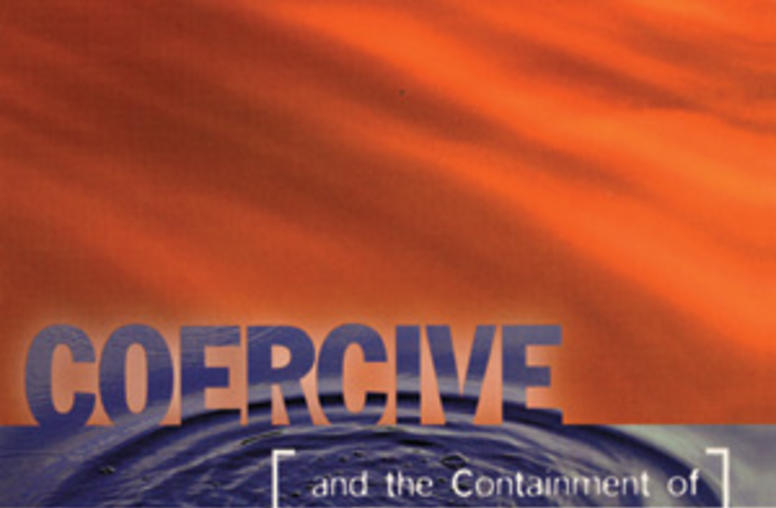
Coercive Inducement and the Containment of International Crises
The concept of a “middle ground” between simple peace enforcement and traditional peacekeeping by lightly armed observers has been both ill defined and controversial. But the authors of this thoughtful yet challenging volume make a strong case for both the practicability and the desirability of such operations
Peace Agreements: Chiapas (Mexico)
San Andrés Larráinzar Agreements Agreement (02-16-1996) Posted by USIP Library on: February 16, 1999 Source Name: Mexico, Ministry of the Interior Source URL: www.gobernacion.gob.mx/gEng/chiapas/ing_asa1.html Date downloaded: February 12, 1999 Joint declaration that the federal government and the EZLN shall submit to national debating and decision-making bodies (Document 1) (02-16-1996) Posted by USIP Library on: ...
Peace Agreements: Ecuador-Peru
Ecuador-Peru Border Agreement in Spanish (10-26-1998) Posted by USIP Library on: February 3, 1998 Source Name: The Embassy of Ecuador, Washington, D.C. Date E-mailed: January 29, 1999 Rio Protocol (1-29-1942) Posted by USIP Library on: December 18, 1998 Source Name: International Boundary Studies, no. 172 Ecuador-Peru. Washington, D.C.: U.S. Department of State, Bureau of Intelligence and Research, May 19, 1990. Date faxed: November 18,, 1998 from the World Ban...
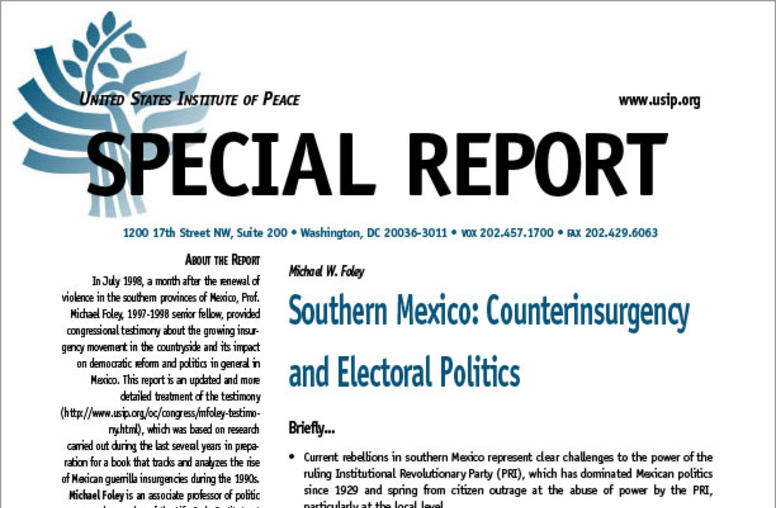
Southern Mexico: Counterinsurgency and Electoral Politics
Summary... Current rebellions in southern Mexico represent clear challenges to the power of the ruling Institutional Revolutionary Party (PRI), which has dominated Mexican politics since 1929 and spring from citizen outrage at the abuse of power by the PRI, particularly at the local level. The current government's strategy has combined conciliatory gestures with military counterinsurgency operations and dialogue in attempts to buy support through generous public works projects, with l...
Peace Agreements: Guatemala
Acuerdo sobre Cronograma para la Implementación, Cumplimiento y Verificatión, de los Acuerdos in Spanish (12-29-1996) Posted by USIP Library on: November 20, 1998 Source Name: Defense Attaché, Embassy of Guatemala, Washington, D.C. Source URL: www.mdngt.org/paz/acuderdo12.htm Date Downloaded: November 16, 1998 Acuerdo de Paz Firme y Duradera in Spanish (12-29-1996) Posted by USIP Library on: November 20, 1998 ...
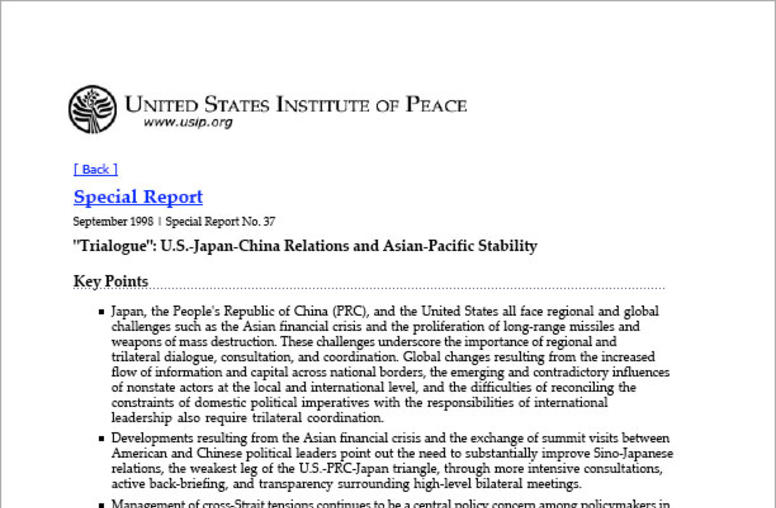
"Trialogue": U.S.-Japan-China Relations and Asian-Pacific Stability
The exchange of summits between the leaders of the People's Republic of China and the United States, the Asian financial crisis, and the decision by India and Pakistan to engage in nuclear testing have redirected the security agenda of the Asia-Pacific region. Such developments underscore the ongoing difficulties inherent in the transition from traditional approaches to security defined by the Cold War to a post-Cold War structure of international relations in the Asia-Pacific.
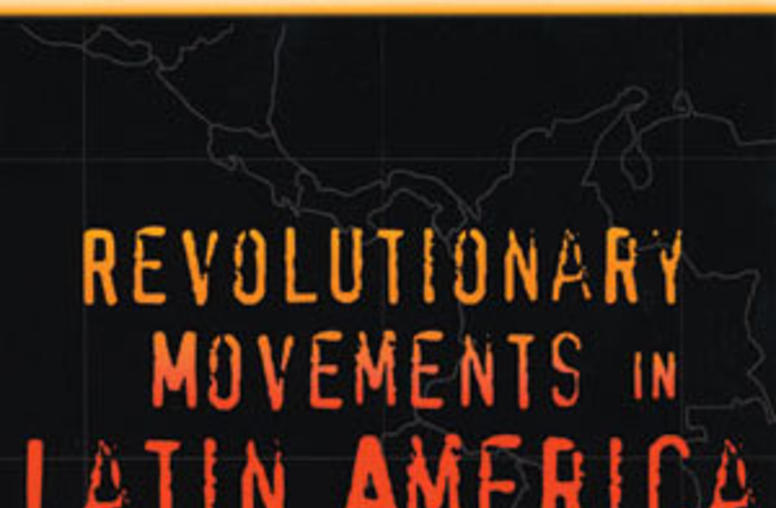
Revolutionary Movements in Latin America
The author examines the complex interplay among political and economic factors, the nature of the revolutionary organization, and international actors. The end of the Cold War does not mean the end of revolutionary groups, and that the United States can play an important role in determining the outcome of future confrontations.
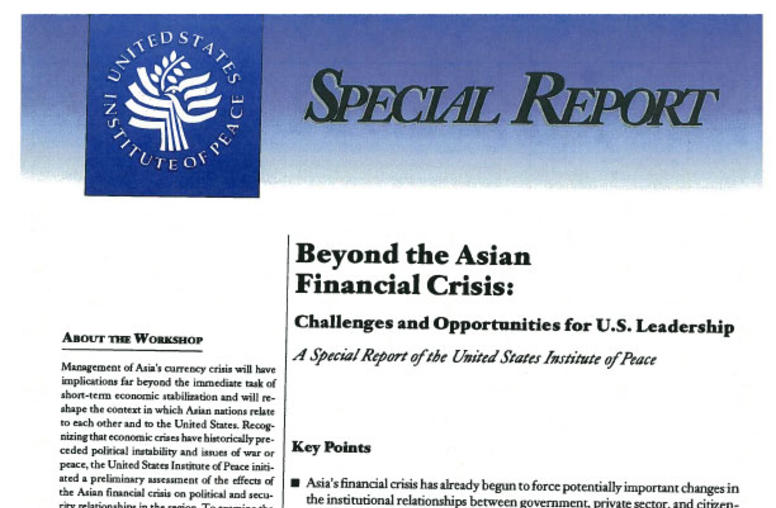
Beyond The Asian Financial Crisis: Challenges and Opportunities for U.S. Leadership
Following two decades of rapid growth, social change, and industrialization, the countries of the East Asian region are experiencing their first regionwide economic crisis. The immediate economic causes of Asia's financial crisis--especially unsustainable short-term foreign debt incurred by the private sector and exposed by the sudden devaluation of overvalued local currencies--have been identified. The challenges for U.S. leadership in response to the region's current financial crisis are to...
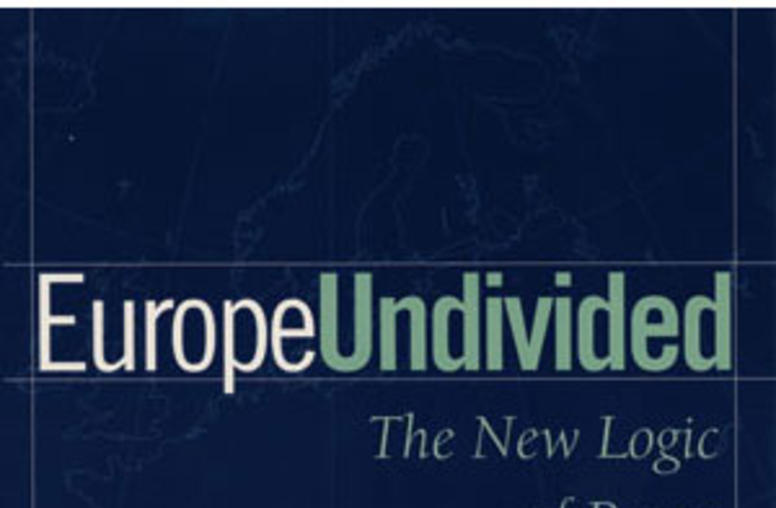
Europe Undivided
Can Russia and the United States really move beyond their bitter Cold War rivalry to a genuinely cooperative relationship?
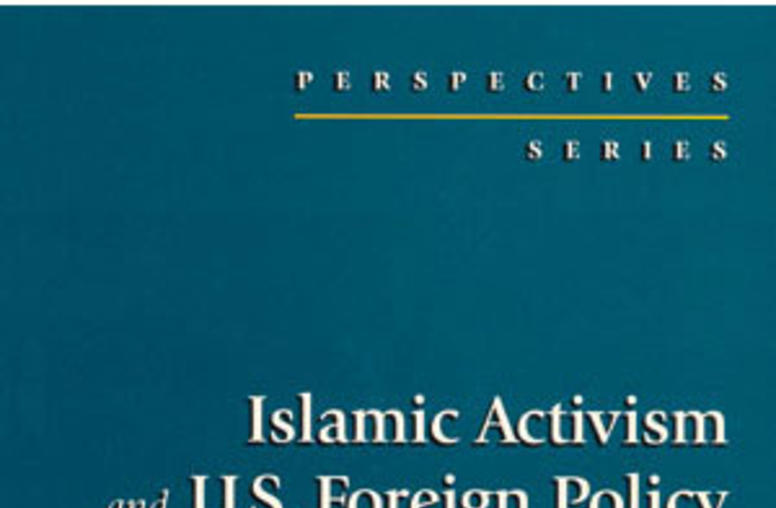
Islamic Activism and U.S. Foreign Policy
For many in the West, political violence in Algeria, the Middle East, and elsewhere has come to symbolize the threat of “Islamic activism.” Terrorist attacks such as the bombing on the World Trade Towers have solidified this view. Western governments, however, must deal with the challenge of extremism in the broader context of their relations with diverse states with contrasting histories, geographies, and peoples.